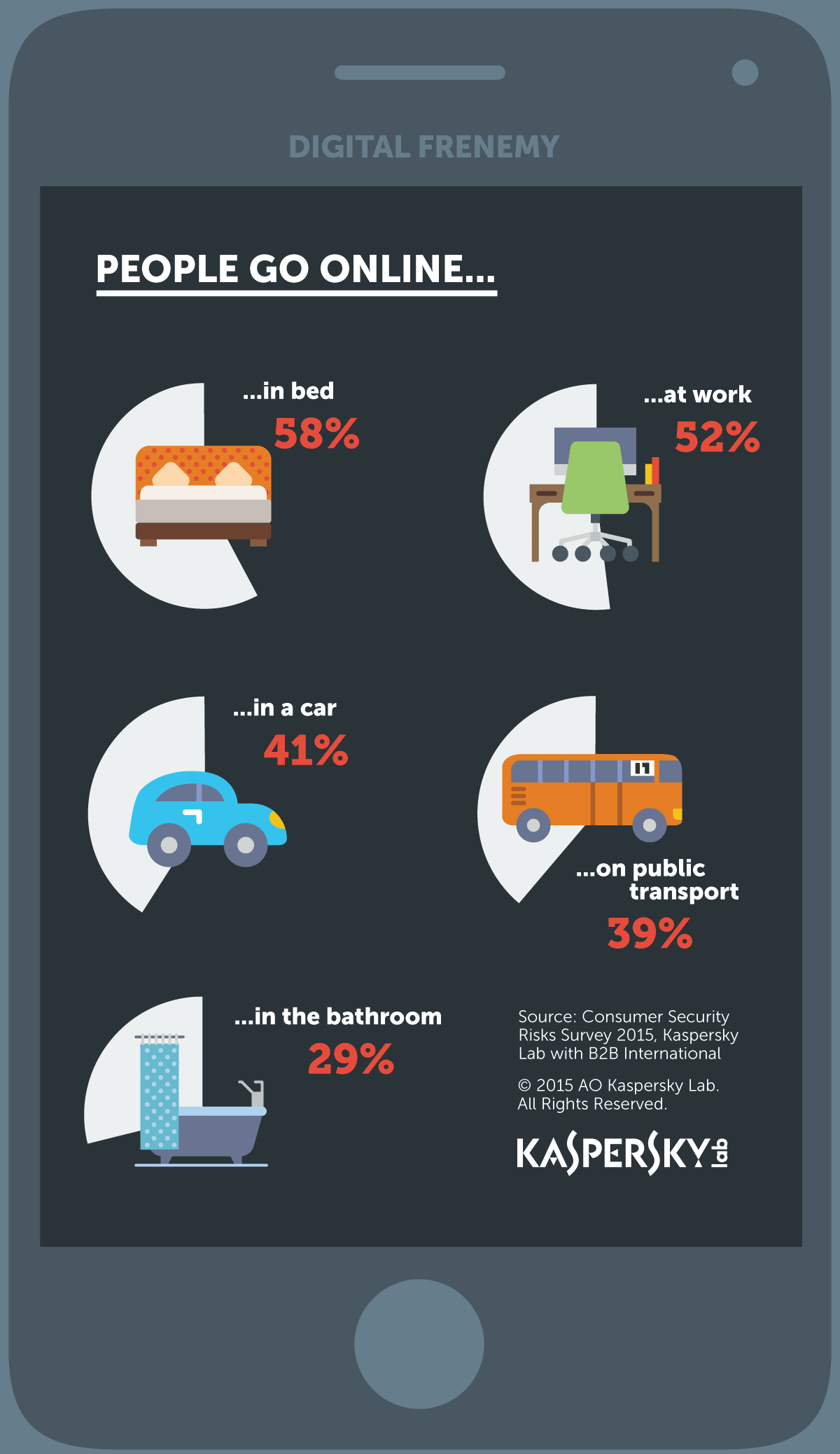Research by Kaspersky Lab and B2B International shows that the relationship between users and their digital devices is often closer than even their best friends. Among other findings, the survey showed that 30% take their devices into the bathroom with them, while 25% "share" secrets with their device that they don't want anyone else to know. However, this confidence could put users at risk as devices could be compromised and their private information exposed. 
The study found that the overwhelming majority of Europeans (88%) store important, confidential and sometimes irreplaceable information on their smartphones, such as passwords, messages, photos, contacts, files, and more. Still, one in four Europeans says that there is sensitive information in their device that no one else would want to see.
Moreover, these devices are carried and used everywhere, in places such as space work (50%), the car (38%), public transport (45%), the bed (55%), even in the bathroom (30%).
Outside the home, these devices face risks such as damage, loss, theft and tampering by digital criminals who seek to intercept data or even spy on users. Devices used on open Wi-Fi networks are particularly vulnerable to attack. However, few users take action to reduce the risks. The company's research concluded that just 18% of European users adjust their online activity when on an insecure public Wi-Fi network, despite the fact that hackers can easily steal data and codeof access. Only about half (45%) take advantage of the security features that devices offer, such as remotely blocking or being able to locate the device.
The consequences of not protecting the devices we carry with us may be extensive. According to the survey, a quarter of those who were lost or stolen discovered that personal data or confidential information had leaked.
This, however, does not mean that users are automatically safer when they are at home. There, they face different and sometimes more serious dangers, especially in particularly personal spaces such as the bedroom and the bathroom, where hackers can easily turn the webcam towards the users.
"The relationship of trust that users have developed towards their devices can lead them to neglect the issue of security. It's hard to imagine that something we carry with us at all times and turn to for everything could pose a threat. Unfortunately, this can – and does – happen. A "digital friend" can become a "digital enemy". A failure to assess potential risks and protect devices and information accordingly could mean the loss of confidential information, money, and even our identities. The device camera we use to capture the outside world can eventually be hacked and used to see something from our own world. Security is not just an optional extra feature that we can ignore' said Peter Aleshkin, Head of Consumer Marketing Kaspersky Lab for Emerging Markets.
To avoid the unpleasant consequences of a violation, Kaspersky Lab recommends the use of strong passwords on devices and online accounts, the installation of a reliable security solution, such as Kaspersky Total Security - multi-device, as well as special attention when accessing websites and downloading apps, especially when users are connected to insecure Wi-Fi networks.
To check if your Internet behavior is safe, you can make the specialist online test of Kaspersky Lab. Here you can find more information on how to protect yourself.





